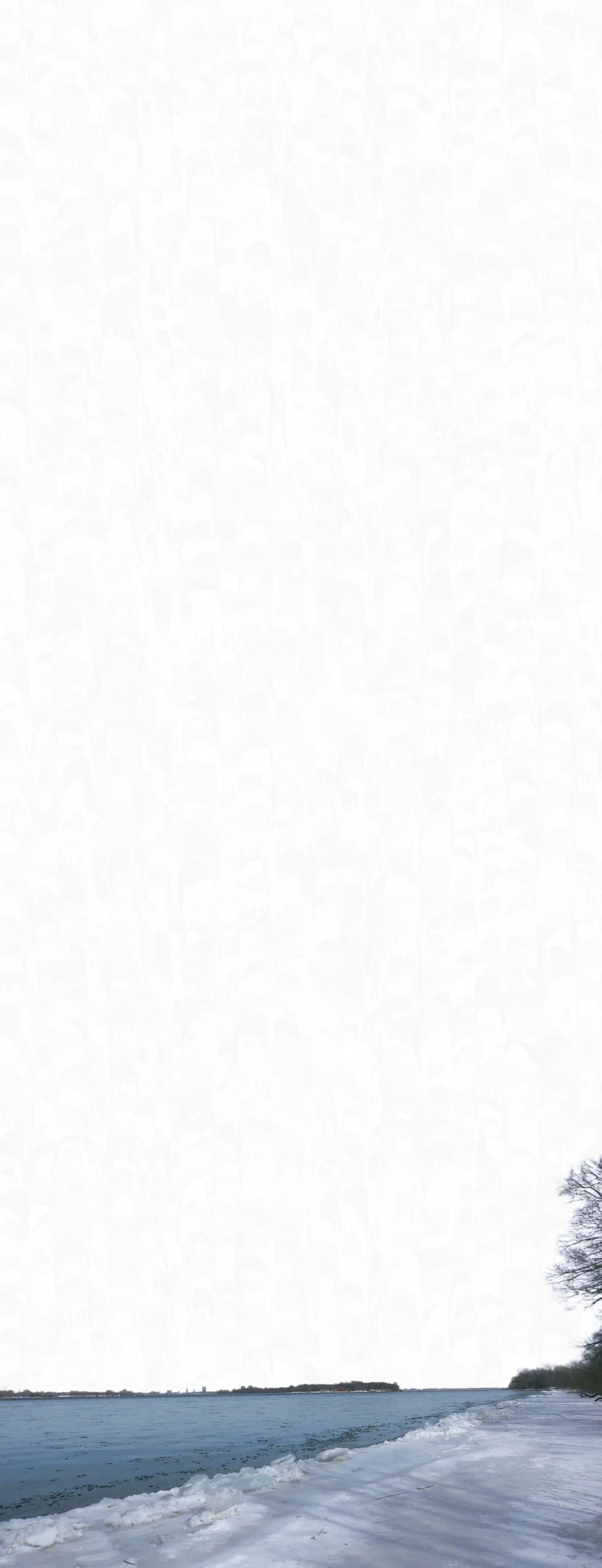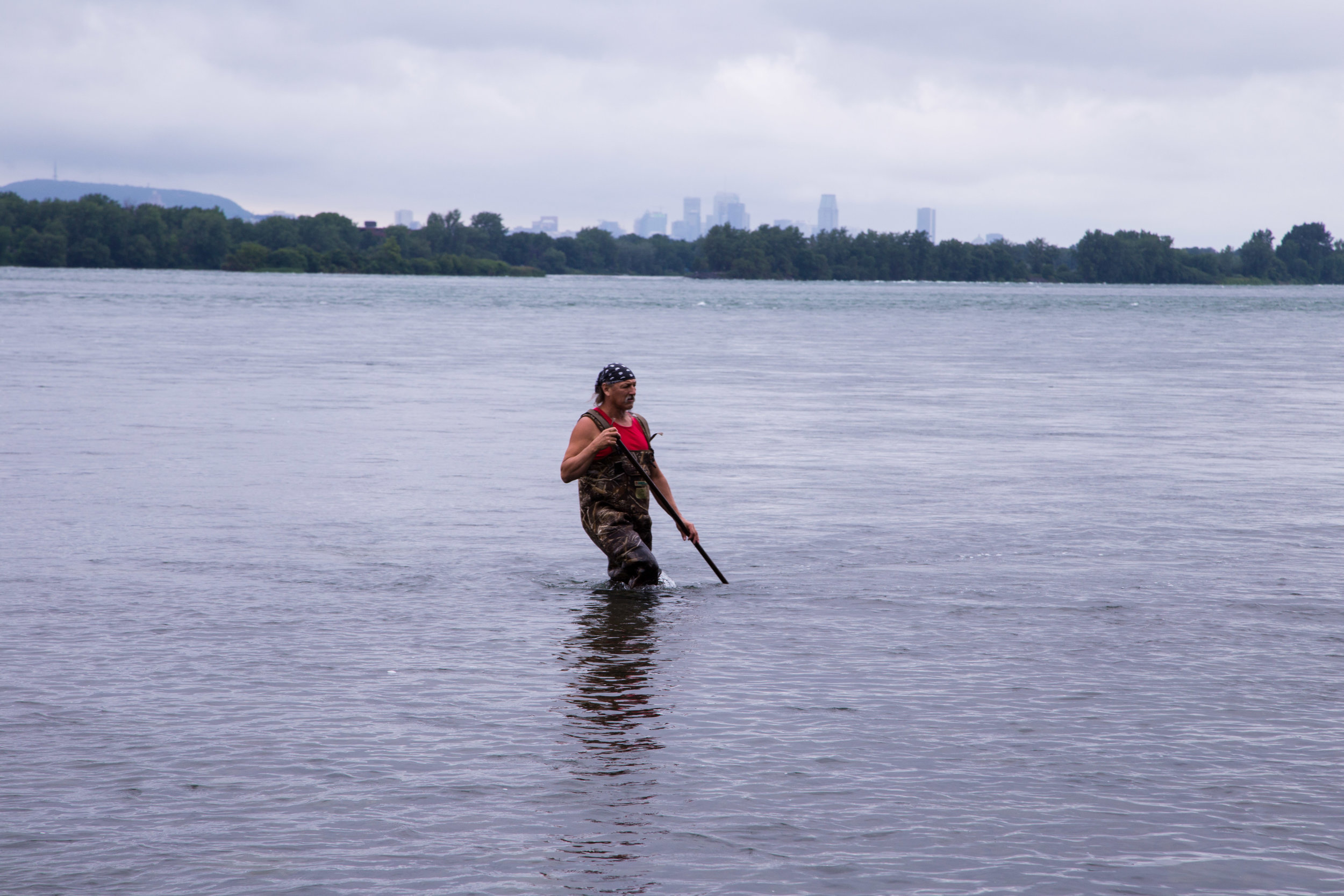















Dirt McComber spearfishing in the St. Lawrence River.
Co-director and producer, Ryan White (left) shooting Dirt McComber (right) as he spearfishes in the St. Lawrence river.
Dirt McComber spearfishing in the St. Lawrence River.
Dirt and Rahnitsatorats
Dirt McComber (right) and his son, Eric “Rahnitsatorats” Mccomber (left), fishing in the St. Lawrence river.
Dirt McComber: Last of the Mohicans

DIRT MCCOMBER NOW AVAILABLE TO WATCH ONLINE!
Dirt McComber: Last of the Mohicans was officially selected to be apart of Asinabka Film & Media Arts Festival and was screened Virtually
Dirt Mccomber is now available to watch online at anytime. Check out where to watch dirt on these various platforms!
DIRT MCCOMBER vs TYLER SUNDAY
Eric “Dirt” McComber is a rugged individualist who provides for his large family by hunting and fishing the Kahnawake Mohawk Territory near Montreal. But he must straddle two worlds to accomplish his many business, family, and societal functions.
The Origin of the Lacrosse Ball
Teiotièn:taron 'River' McComber reminds us of an Indigenous tradition where the lacrosse ball was made from the head of a sturgeon fish. His father, Dirt McComber, catches the fish, and River cuts into it to create what is known as the "Sturgeon Ball." This practice connects back to the origins of the game, carrying deep cultural and spiritual significance. By making the ball this way, River keeps the tradition alive and honors its history.
You can find out more about Lacrosse at:

DIRT MCCOMBER TAKES HOME THE GOLD
Dirt receives the winning award for Best Sports Feature at the 23rd RNCI Red Nation Int’l Film Festival as well as Best Feature Film at the Reedy Reels Film Festival in South Carolina!
INTERNATIONAL INSTITUTE FOR INDIGENOUS RESOURCE MANAGEMENT DESIGNATES KAHNAWAKE MOHAWK NATIVE ERIC “DIRT” MCCOMBER AS NATION BUILDER
Eric "Dirt" McComber is to be honored as a "Nation Builder" by the International Institute for Indigenous Resource Management at their annual Indigenous Film & Arts Festival on October 4th, followed by a Roundtable discussion with Dirt himself!
“(Denver, Colorado) The President of the IIIRM, Mervyn Tano, has announced that Mr. Eric McComber has been designated a ‘Nation Builder’ and will be honored as such at the International Institute for Indigenous Resource Management's annual film festival next month. The film, DIRT MCCOMBER: LAST OF THE MOHICANS, will open the festival at the University of Denver. Dirt McComber will also be part of a Roundtable discussion entitled: ‘Reclaiming our Spaces: Visualizing and Realizing Diversity in the Museum of the Future.’
President Tano discovered Dirt when attending the Dirt McComber film premiere in Montreal at the Montreal Indigenous Peoples Film Festival in August.
The International Institute for Indigenous Resource Management is a law and policy research institute. Established in Denver, Colorado in 1997, the Institute's cadre of internationally-based legal scholars and researchers work on cutting-edge projects designed to empower native peoples by examining the role the law can play in establishing and enhancing indigenous peoples' control over and management of their lands and resources. Institute teams also study ways indigenous peoples can assess and manage the impacts of science and technology on their societies and help build and strengthen native legal, technical, management, and other systems and institutions.
To learn more about the Institute and the film festival, see their web page: iiirm.org."






































